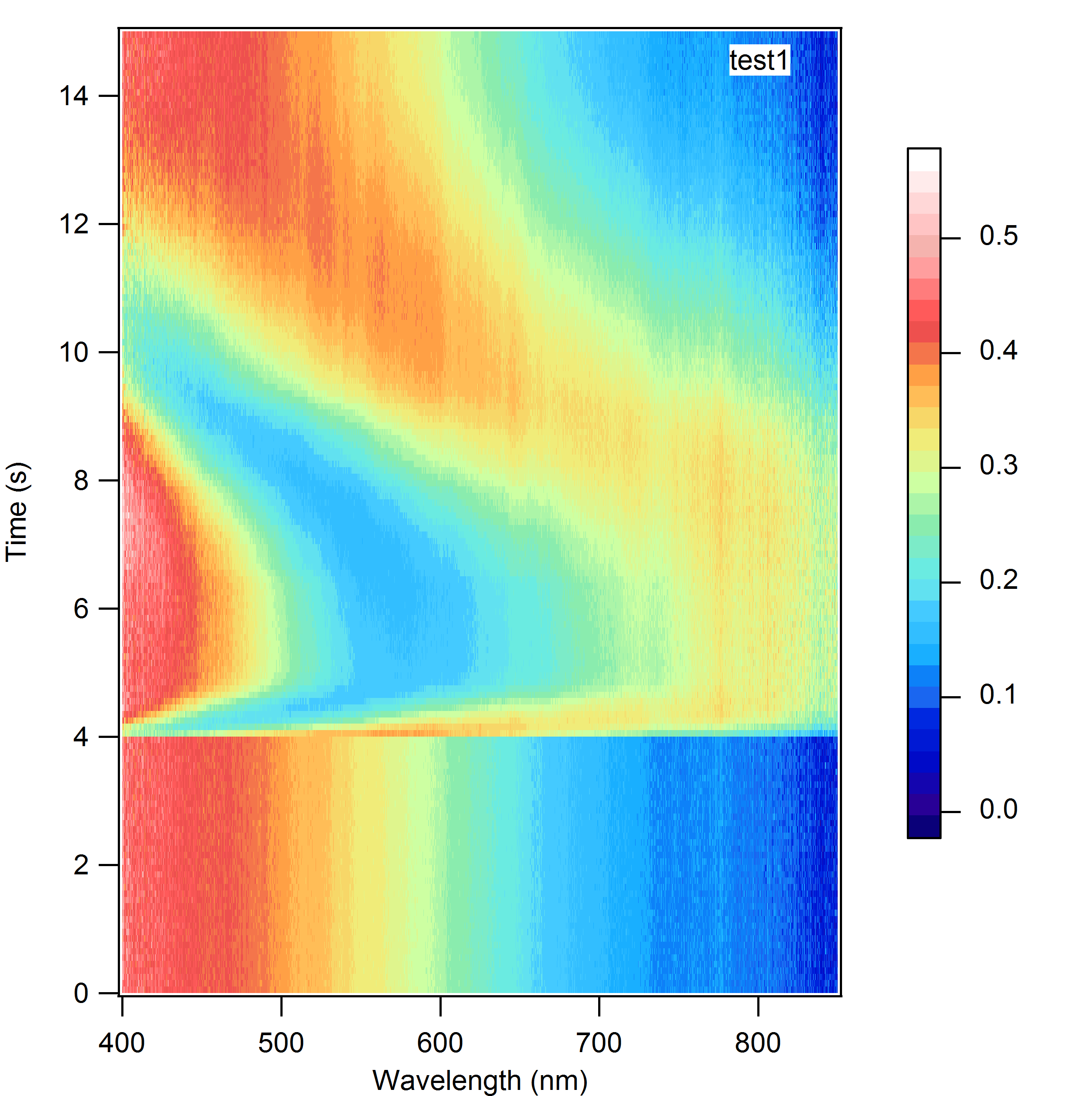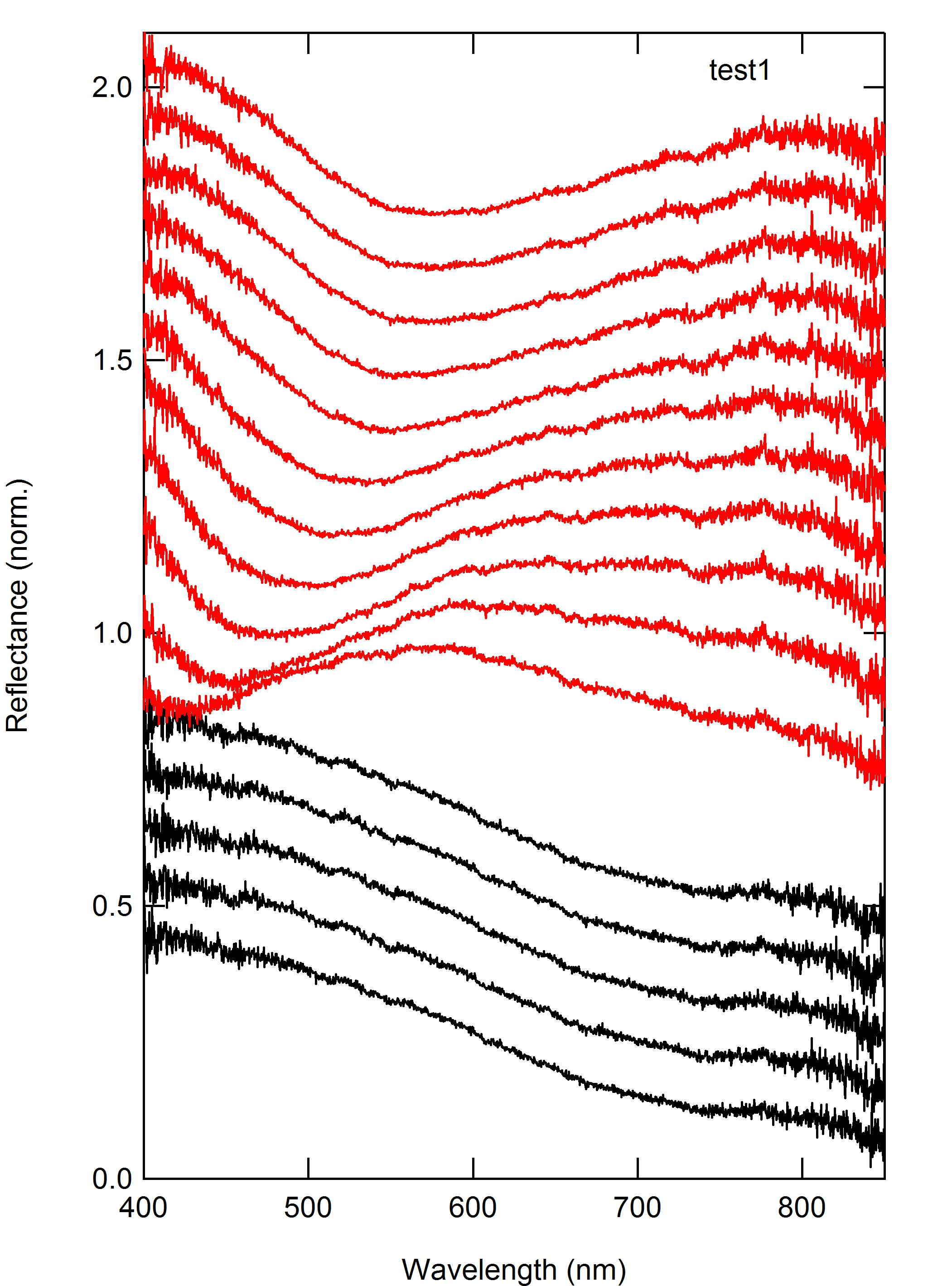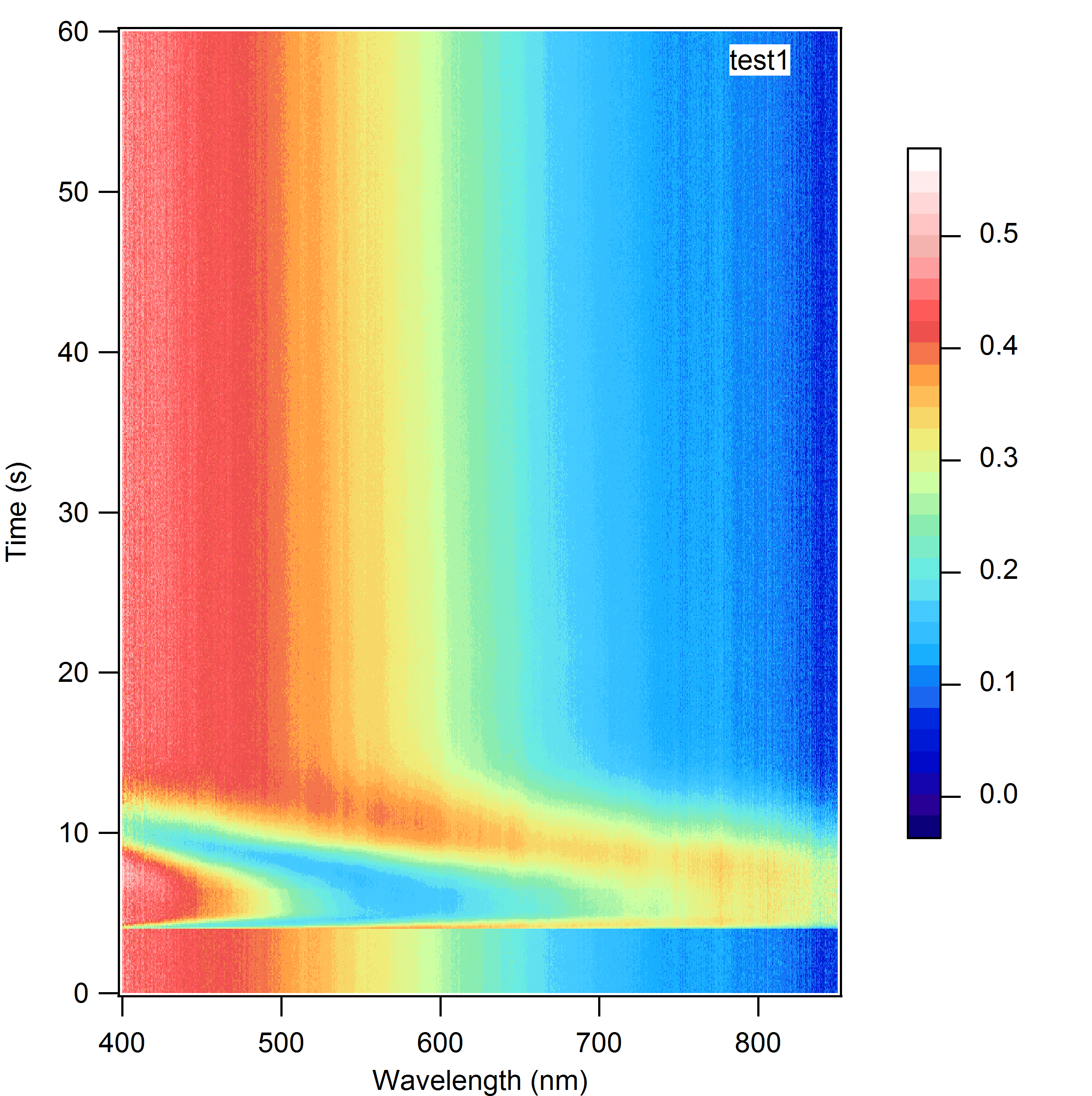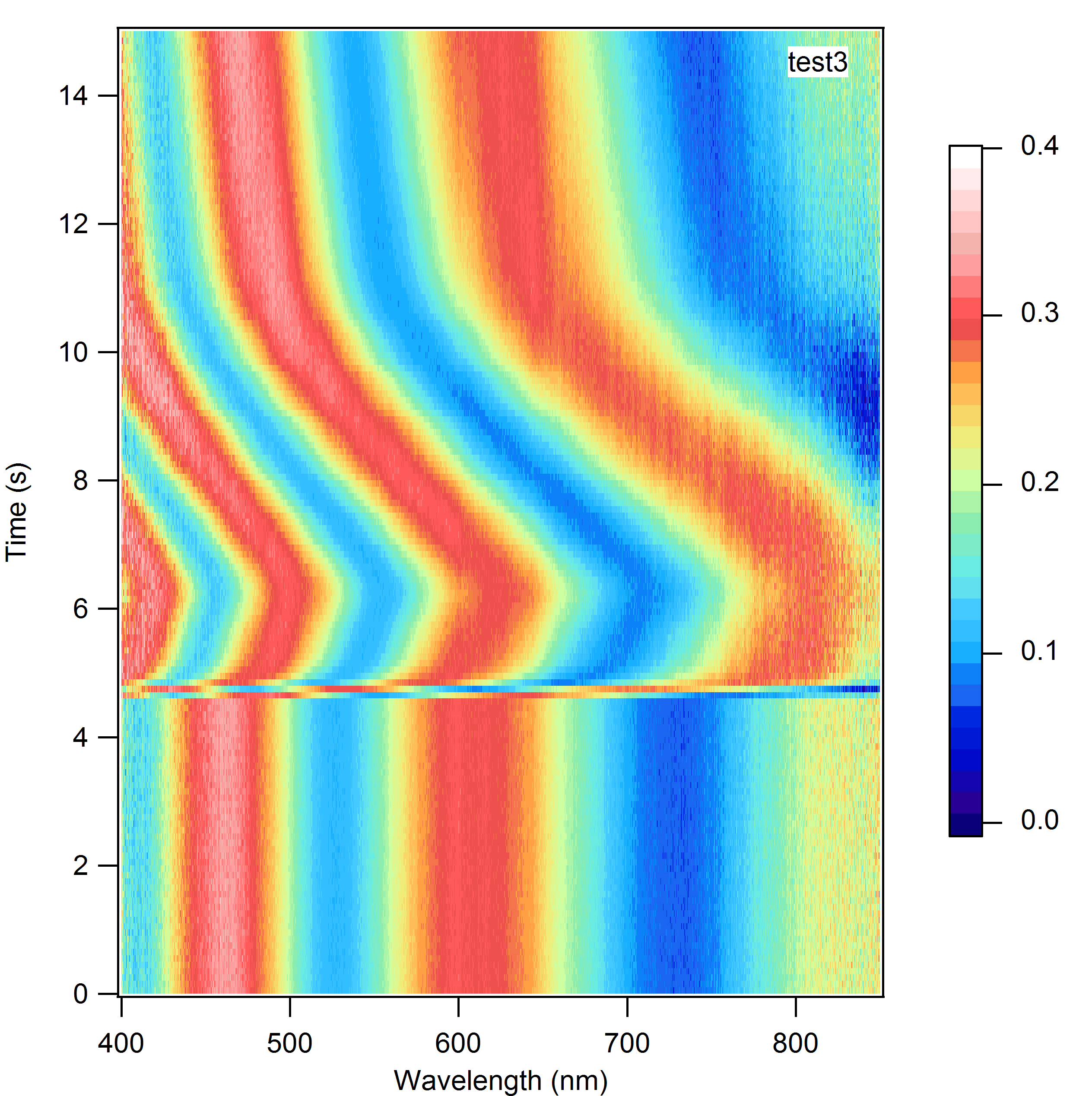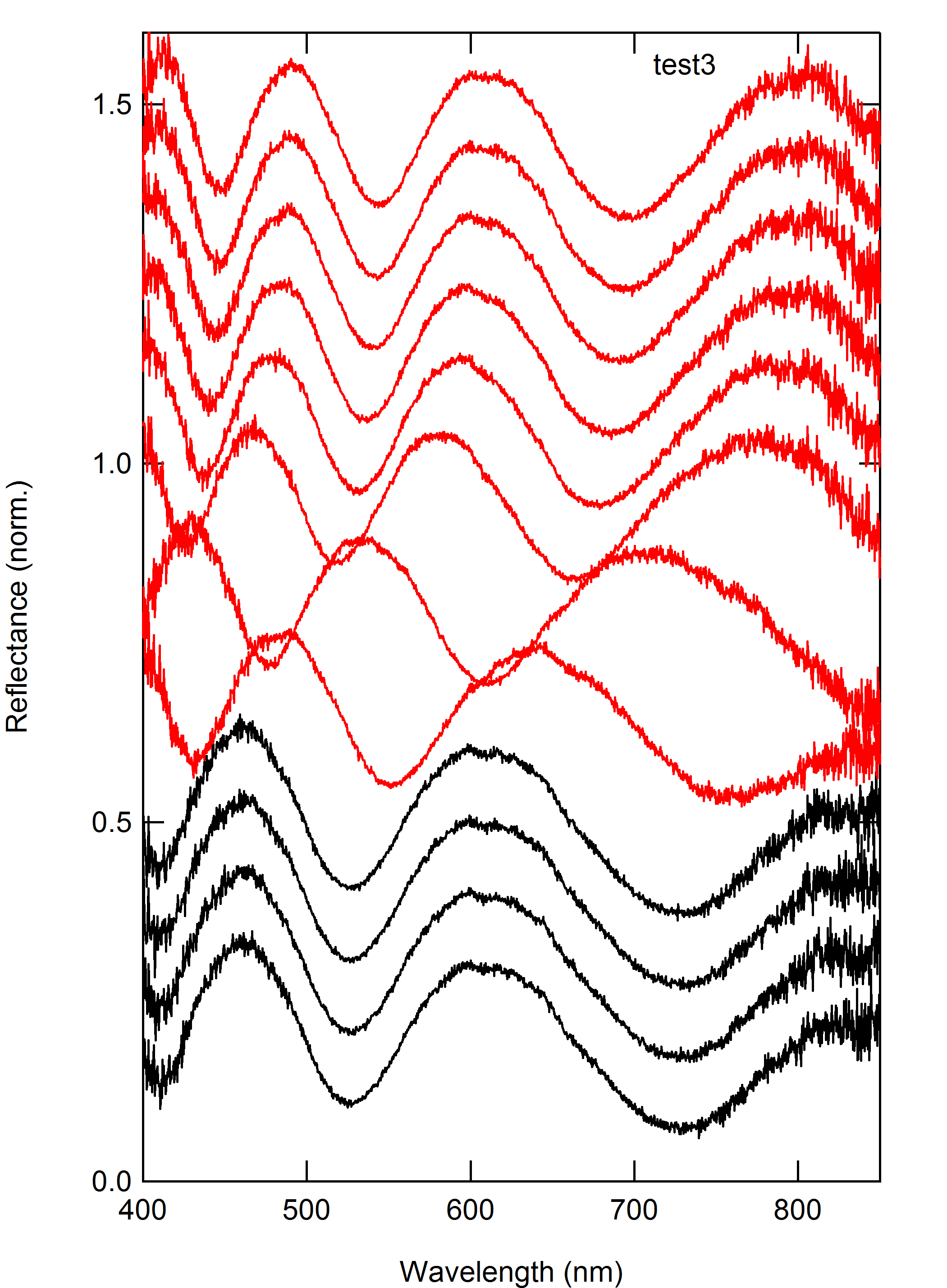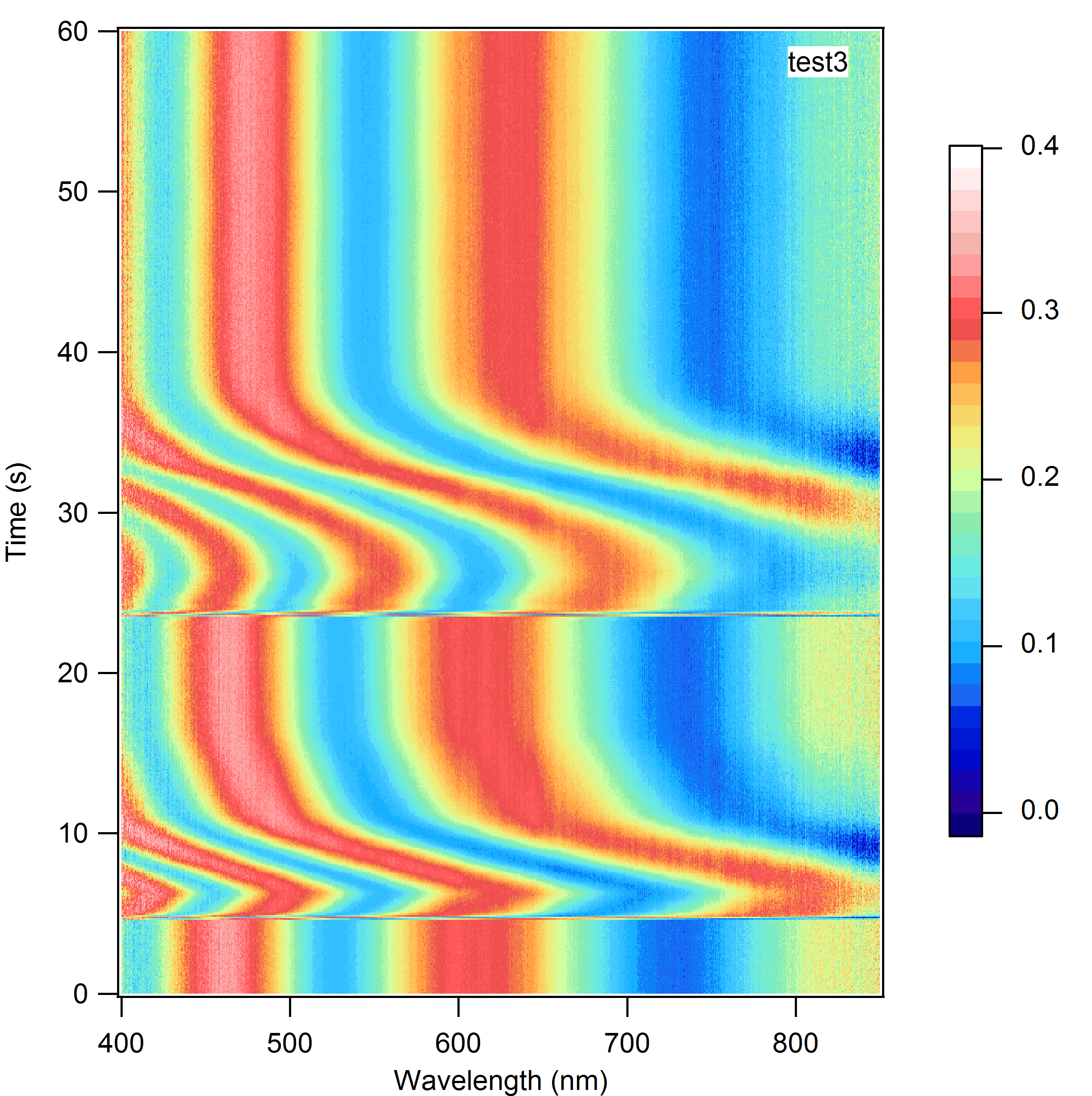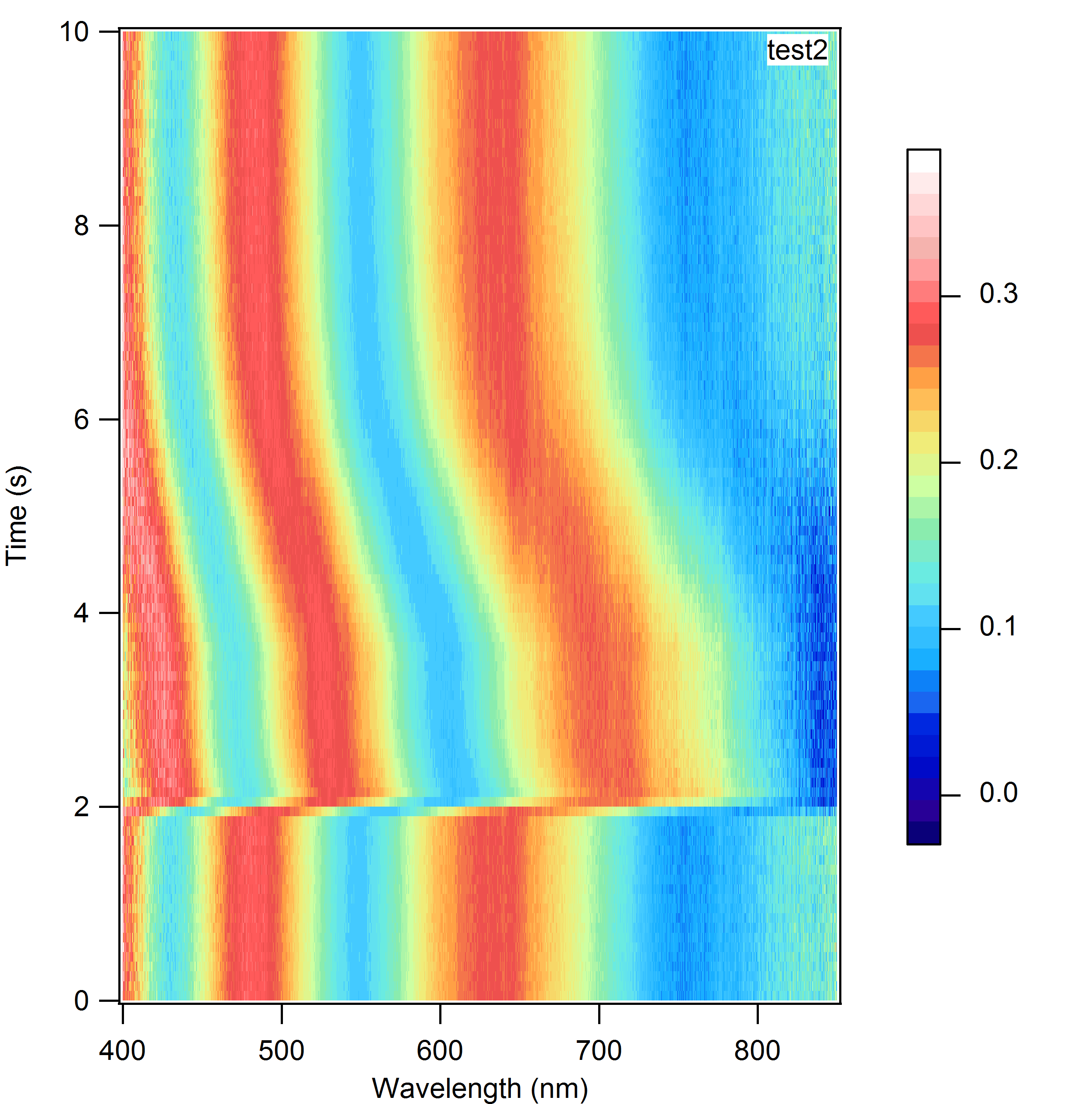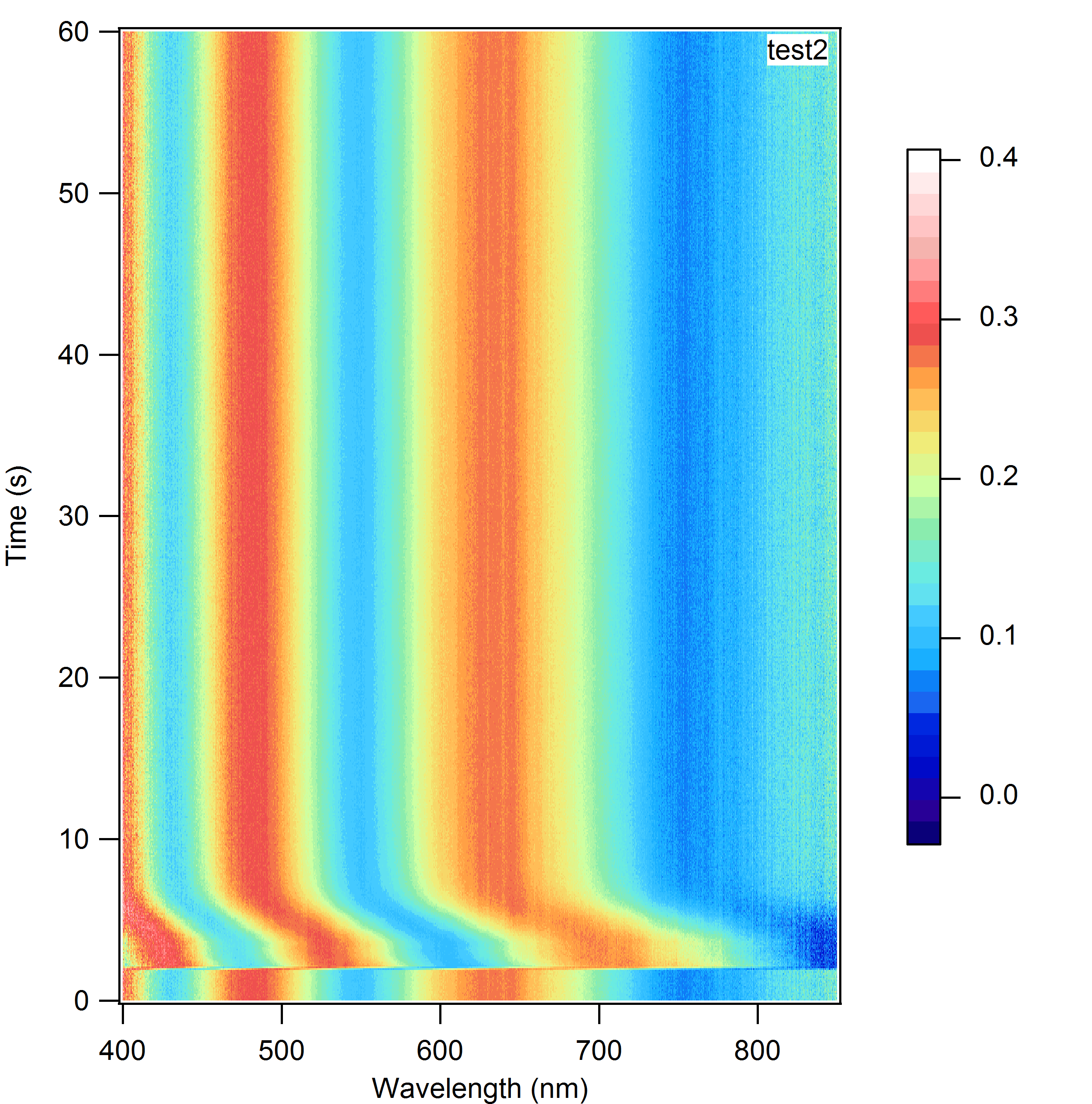Team:Cambridge/Experiments/Reflectin Thin Films VII
From 2011.igem.org
(Difference between revisions)
Felix Zhou (Talk | contribs) (→Double Layer Spectra) |
Felix Zhou (Talk | contribs) (→Triple Layer Spectra) |
||
| Line 24: | Line 24: | ||
<center> | <center> | ||
{| | {| | ||
| - | |[[File: | + | |[[File:cam_Test2a.png|thumb|200px|center|Contour plot of reflectance (height) against wavelength along the x-axis and time along the y-axis at the point where breathing was applied]] |
| - | |[[File: | + | |[[File:cam_Test2b.png|thumb|200px|center|Spectral data slices, they have been displaced in order to better illustrate the changes in profile with time with black indicating before breathing and red after]] |
| - | |[[File: | + | |[[File:cam_Test2.png|thumb|200px|center|Contour plot of reflectance (height) against wavelength along the x-axis and time along the y-axis for the entire capture duration showing the film reverts back to its original colouration]] |
|}</center> | |}</center> | ||
Revision as of 23:24, 21 September 2011
Loading...
Back to Experiments
Contents |
Spectral Measurements of Thin Films
With the tris dialyzed samples we recorded spectral data to show that the films being spun were truly 'thin film' and we demonstrated the ability of the thin films to change colour upon breathing by recording video and spectral data when breathed upon under the microscope.
Single Layer Spectra
Looking at this we can see that by breathing we have been able to shift the colour of the film from blue to yellow. The presence of one dominant peak is an indication of the thickness of the film as we are only seeing one constructive interference determined by the dominant peak.
Double Layer Spectra
Triple Layer Spectra
PDMS Control
Back to Experiments
 "
"

